Alumni lives and outcomes
Our alumni lead lives of purpose. Whether they’re working as ministers or teachers, entrepreneurs or social workers, they are finding creative ways to serve in today’s world.
Jamie Jackson, (she/her) ’25
What I Learned in Seminary: Peace is Possible
For I was hungry and you gave me food, I was thirsty and you gave me something to drink, I was a stranger and you welcomed me, I was naked and you gave me clothing, I was sick and you took care of me, I was in prison and you visited me. Then the righteous will answer him, Lord, when was it that we saw you hungry and gave you food or thirsty and gave you something to drink? And when was it that we saw you sick or in prison and visited you? And the king will answer them, ‘Truly I tell you, just as you did it to one of the lesser of these brothers and sisters of mine, you did it to me.’
~ Matthew 25:35-40
Before seminary, I didn’t know enough about global peace and was skeptical of believing it was possible. Reading more in-depth about the teachings of Mahatma Gandhi, Martin Luther King Jr., Malcolm X, John Paul Lederach, Frederick Douglass, Margaret Fell, John Woolman, and so many others helped reframe my thinking. I first had to learn about the social systemic issues and their origins. How did we get where we are today? Through learning about our systemic social, cultural, political, and religious issues, I was able to better understand our shared humanity, the violence, and the “crosses we all bear.” Alongside that, I also learned about organizations, religions, and people that had a voice of non-violence, a voice for peace, and a life of peace-making.
Especially in today’s climate, it is challenging to rise above us vs. them or the cycles of dualistic thinking. At some point, though, I have to take a stand against the violence and hatred that dominate our narrative and actions. However, I was encouraged by John Paul Lederach’s writing about how it is possible to grow in the capacity to hold paradoxes and remain curious and open. He calls this paradoxical curiosity. He says, “The gift of paradox provides an intriguing capacity: It holds together seemingly contradictory truths in order to locate a greater truth.” So, the peacemaker’s goal is to transcend the complexities of a difficult situation to an even greater truth.

It also must depend on the stakes involved, which must be considered. However, he says that “that paradoxical curiosity suspends judgment in favor of exploring present contradictions, at face and at heart value, for the possibility that there exists a value beyond what is currently known that supersedes the contradiction.” This is where God comes in. I feel that if we remain open and allow God to enter the space of conflict, and we follow the call to respond in loving ways that unite, harmonize, liberate, protect, honor, and even heal the broken and wounded places within us and around us, then peacemaking has done its work.
However, the work of peacemaking and the peacemaker is never entirely done in our world. It is a complex, dynamic world, filled with more than its fair share of hatred and violence. In my time at ESR, I learned that peace is a knowing beyond belief that has settled into my heart and says peace is possible. Something I also learned that feels necessary for a peacemaker to hold and build within oneself is the openness and willingness to change, to be flexible and fluid with God, ourselves, and others.
Mallory Woodard, M.Div., BCC (she/her) ’21
Forgiveness, trust, and safety
There is a perpetual question that has often haunted me throughout my life: “What do you want to be when you grow
up?” I remember being asked this in 5th grade. We were sitting at our desks, lined up in rows, and my desk was in the center. I had half the class to get through before I had to have an answer ready. This caused my little heart much anxiety. What if my answer isn’t right? What if it isn’t enough? And then came my turn. “Teacher. I want to be a teacher.” And because the response from my teacher was positive, I went with it. I graduated from high school and attended a local university. “What do you want to be when you grow up?” There it is again. What’s my major, what are my plans, what
will my future look like, what will I do when I graduate? “Teacher. I want to be a teacher. Oh no, not that type of teacher. Like a high school teacher. Yeah, yeah, a high school teacher. I’m majoring in English.” A major in English turned into a Bachelor of Arts in English with a concentration in Language and Linguistics. And that turned into a two-year stint in West Africa teaching English. And that turned into Teaching English as a Foreign/ Second Language certification. And that? That just never felt right. This perpetual question often haunted me. What I really wanted to be or do felt so niche because I honestly just wanted to get coffee with people and help them process their lives and
emotions. But that’s not a real job, is it? One day, as an interfaith healthcare chaplain, I came into work, sat at my desk, and checked my email. I had received a speaking engagement request for the healthcare system with which I am employed.
They had been impressed by my talk at a different event and wanted me to speak to a larger community about the ways that faith and health are entwined. This was the moment
I realized that I was no longer haunted by the question of my youth. Being an interfaith chaplain allows me to do what I
wanted to do all those years ago. I get to journey alongside people in their griefs and losses and experiences and
emotions and to support them as they want or need. I get to walk with people through their story and how that’s affected
their health. I am given the gift of their vulnerabilities and their fears. And sometimes I get to just hang out and drink
coffee with them because that’s how they experienced community at the homeless shelter.
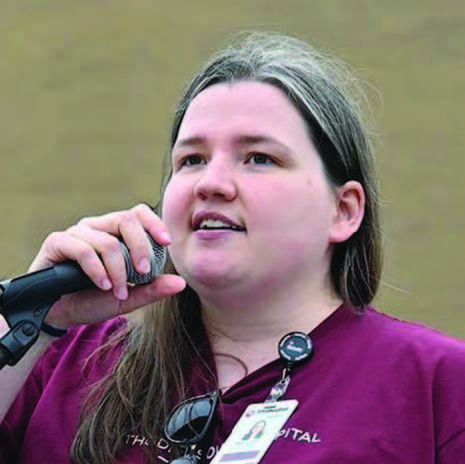
Or I get to take a piece of chocolate and some lavender to a staff member who is having a rough day, and listen to their story. Or I get to hold a baby and talk to the nurses about how I can support them in their jobs. I get to do these things because what people really need is a friend. There’s death in the tiniest and the oldest among us. There’s suffering. There are mental health issues.
There is pain. And still, there is being a friend. There is holding the mother who lost her son to drug abuse, the staff member who is going through a divorce, and the family who chooses to donate their loved one’s organs. And still, there is being a friend. And in the process, I get changed by being a chaplain. I am figuring out what it means to show up as myself when I feel like I’ve been showing up as other people my whole life. I get the chance to lay claim to those dreams that seemed so ridiculous all those years ago. I get to be fully me when that has often been discouraged. I get to talk to that anxious and confused 5th grader and let her know that it’ll all work
out, let her know what’s possible, and let her know she’s good just the way she is. To me, that just makes sense for a Quaker.
As a person who watches death knock on the door or simply sits with a patient before they get discharged, I can truly say every moment is spiritual. I am ready to give what’s meant for others. And I am ready to receive what is meant for me. I learned this at ESR, I learned this from Friends, and I learn this every day at the hospital. Chaplaincy changes you.
Oscar M. Lugusa ’17
Life Lessons: Mnistry Ater Seminary
When I left Kenya to come and study at ESR, it was not clear to me what would happen after I finished my studies. When I decided to go to ESR, I was cautioned not to come back, or if I did, I risked the danger of living a miserable life. Still, the bone of contention was about coming back to serve among Kenyan Quakers, which may not be rewarding even after furthering your studies. However, the experience I had already gotten had taught me to soldier on with life in whatever circumstances would be. I still trusted and hoped that God would provide. So that did not bother me so much.
Anyway, I had no definite answer by then on the plans I had after ESR, but seemingly God had a plan in place already. At that time, ESR had rolled out a certificate in entrepreneurial ministry, which I had just enrolled in as one of the pioneer students. I thank God the program started when I deeply pondered the next move. I was unsure if I would be rehired where I served before coming to the US. And even if I was to be hired, there were still questions if what I would earn would sustain my family and me as I served in ministry.
The rationale of the certificate in the entrepreneurial ministry program was to support those graduating at ESR. It became so helpful for me because I could be innovative in looking for other ways of getting income to sustain my family and me while serving in ministry. My wife and I acquired a small piece of land, and we planted trees for a long-term investment. On a short-term basis, we decided to plant corn, sweet potatoes, vegetables, and napier grass for our domestic use and the dairy cow we also rear.
What we get from the farm subsidizes our costs, especially food. We hope someday that the farm will be used as a demo farm where those who train and serve in ministry will have an opportunity to come and learn about entrepreneurial ministry. I cannot imagine how life would be if it were not for the program because, still, what I earn as I serve among Quakers is relatively minimal. God continues to provide anyway. Quite amazing!
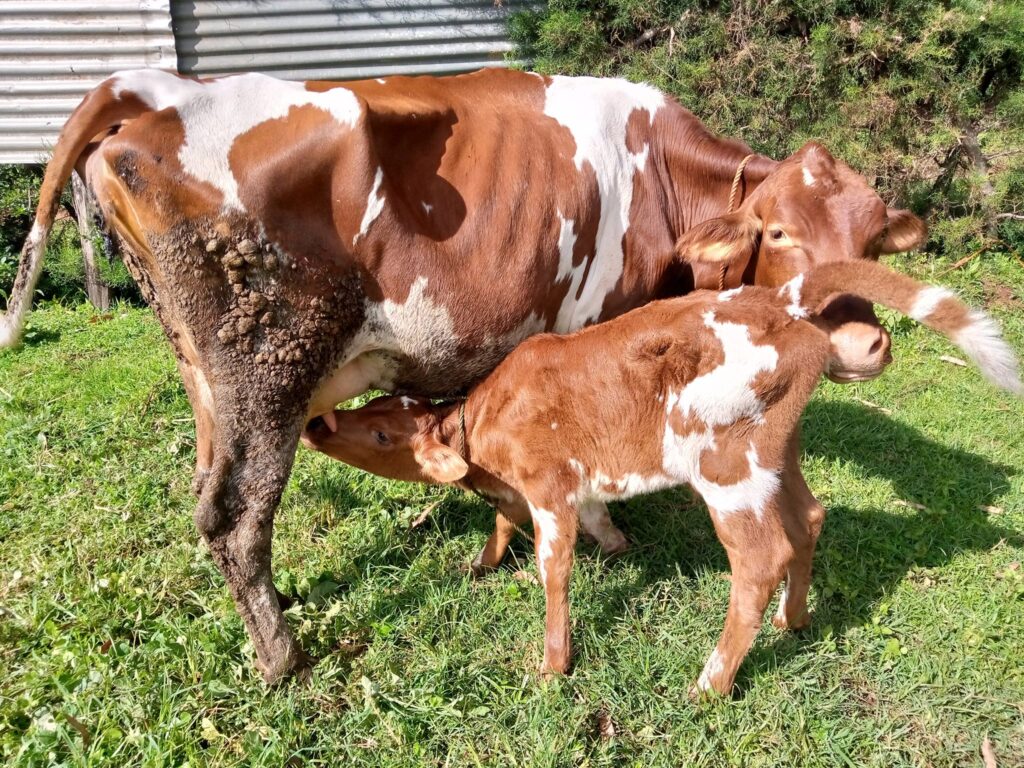
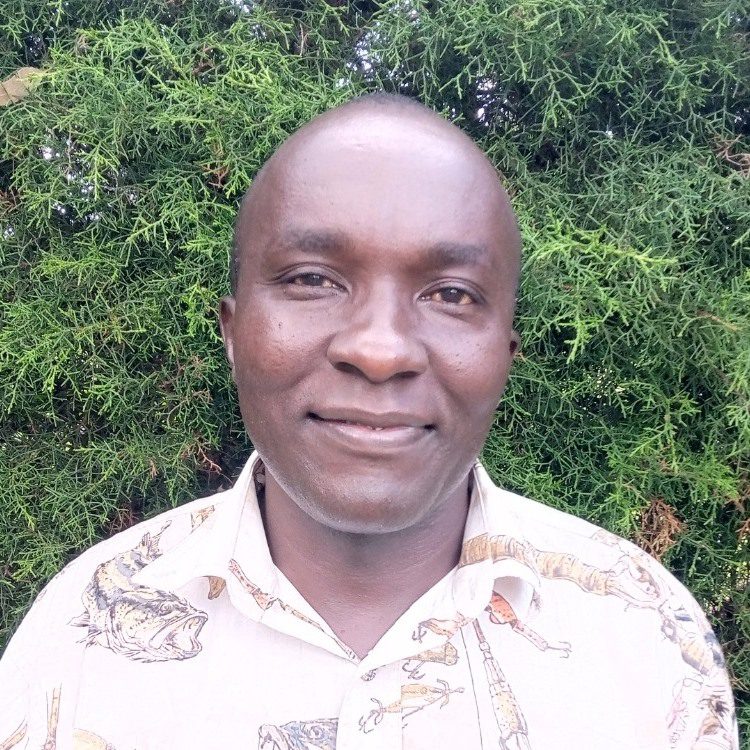
It is not always clear what will happen after graduating from seminary, even if there is a definite plan. There is no assurance that you will find a place to serve after you finish your studies in the seminary. Joining a seminary or deciding to serve in ministry should not be attached to getting employed or earning money. Being open to the Spirit and letting God take the lead on the next steps after graduation is critical.
What matters is growing to maturity in Christ and serving God, humanity, and all creation more effectively. Being educated and getting informed is more than required in the fast-changing world faced with many challenges. Someone may even ponder why bother to advance in studies just to serve in ministry, but it can be difficult without having proper training. The crisis facing humanity and all creation, including climate change, war, famine, incurable diseases, poverty, and domestic violence, to mention but a few, may require one to be knowledgeable while serving in ministry. Also, furthering your studies is about the future generations, especially in being a role model, which is critical in transforming lives for good.
The two questions that have lingered in me are forward-looking questions that may not have a ready answer. Someone who asks such questions may consider what it takes to serve in ministry. Otherwise, you may ask yourself why I am being asked such questions. A piece of advice here is that standing your ground will matter, whether you move forth to serve in ministry and join a seminary or not. Be assured that discouragements are there that can easily make someone give up. It is five years since I graduated from ESR, and I have never regretted why I joined ESR. I am in the third year of my doctoral studies, continuing to work on my entrepreneurial ministry endeavor and serving at Friends Theological College Kaimosi, Kenya.
Jill Frame ’21
Marriage and Family Therapist
Throughout my time in seminary, people often asked: “What do you plan to do with your M.Div.?” The only honest answer I could provide to the question was: “I don’t know.” When I started ESR, I had no plan, no agenda, and no real goal for applying for my M.Div. to any sort of money-making endeavor.
In May of 2022, I earned an M. Div. from ESR. I had to field the dreaded question many times during graduation month. Luckily, I had gained clarity about the purpose of the MDiv. Here’s how I answer the question now: “It may appear that I will be doing nothing with it. However, my career as a therapist is built upon its foundation.
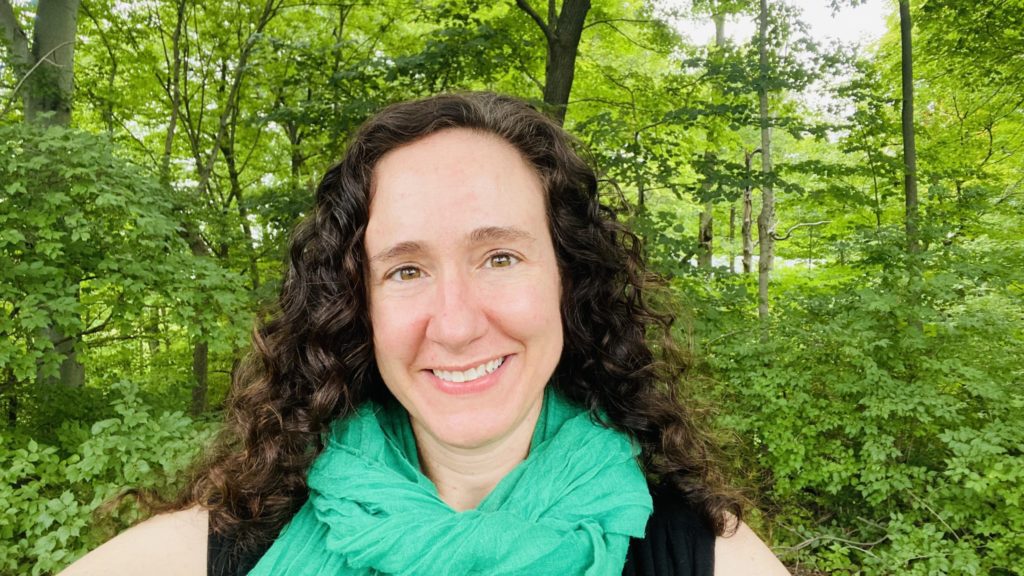
David Garman
Retired Chaplain
After graduating from Kalamazoo College in 1968, I served as a VISTA Volunteer assigned to the Nez Perce Tribe in Idaho. In correspondence with one of my college roommates, we began to discuss religion –he was a student at Colgate Rochester Divinity School– and seeds were planted.
While in Idaho, I decided to file for status as a Conscientious Objector to military service. After Mary and I were married, I moved back to Kalamazoo, MI, to do alternative service at Borgess Hospital. A cousin of mine was a member of the Kalamazoo Friends Meeting and encouraged me to explore living in the rental apartment at the Meetinghouse. As it turned out, the rental was not available, but the Resident Caretakers were leaving. Mary and I became Resident Friends, started attending Meetings for Worship and became Convinced Friends. Through the Quaker network, I learned about ESR. The seeds planted by those conversations with my college friend, Charlie Hartman, took root, and I became a student at ESR in 1973.
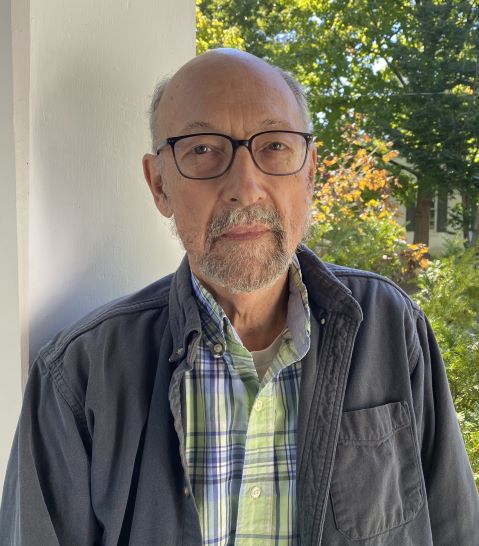
LISA LUNDEEN
Champion chaplain
“I jumped into the deep end,” says Lisa Lundeen, looking back at her introduction to becoming a chaplain at Moses Cone Health System. “During my time at ESR I never saw myself as a chaplain. In fact, I pursued CPE after seminary to deepen my pastoral formation.”
Her two CPE residencies deepened her pastoral authority in ways she did not anticipate. “Conflict resolution, family systems, group and individual spiritual direction – those ESR courses became the backbone of my ministry of spiritual accompaniment in times of high distress.”
The retirement of the Cone Health Women’s Hospital chaplain caused Lisa to consider professional chaplaincy. “I believed that as a minister, a woman, a mom, and someone who had healed through significant grief, I could participate in helping patients and families heal.”
She joined Women’s Hospital and over time, “chaplaincy became normal. The things that seemed so scary before I began became everyday occurrences to me.”
Today, Lisa is Lead Chaplain at Cone Health Cancer Center, where she serves patients and caregivers in an outpatient setting. “I’m challenged to build trust and relationships with people who face tremendous challenges, but who aren’t in a typical hospital environment.” Lisa brings creative solutions to her ministry, and has a keen interest in healing arts, both for support groups and patient classes.
Lisa recently became a Board Certified Chaplain (BCC) through the Association of Professional Chaplains and was system-wide division Employee of the Year at Cone Health in 2015.
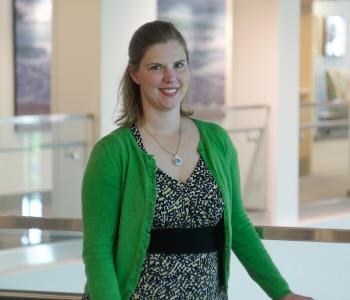
“During my time at ESR I never saw myself as a chaplain. In fact, I pursued CPE after seminary to deepen my pastoral formation.”
DEBORAH SUESS
Way will open
Deborah Suess takes time out of her busy schedule to look back at her time at ESR. Recently retired as pastor of First Friends Meeting in Greensboro, NC, she’s enjoying travel and time with her husband Tim while she considers her future in ministry.
“When I entered ESR I had been a Friend for four years, and had a strong ecumenical background,” says Deborah. “Immersion in Quaker community and practice was important to me.”
Deborah’s first formal pastoral work was as an assistant campus minister at Earlham College. “I spent two years in that role, and that time helped me claim the words ‘minister of the gospel.’ It was a powerful experience, and I assumed that when I graduated I would find a job as a college chaplain.”
Instead, way opened for Deborah to join West Branch Friends Meeting in Iowa, as their pastor. “I felt empowered to join West Branch. Several faculty members had identified gifts that fit that role, and encouraged me. It wasn’t what I expected, but it was the beginning of three great experiences serving three wonderful Quaker meetings.”
Along the way, she maintained several strong connections with peers from her time at ESR, through a Quaker Pastors Covenant Group that she founded with fellow alums Scott Wagoner and Judith Dancy, and through close friendships that developed during her time in Richmond.
While she is busy enjoying semi-retirement, she has an eye on the future. “I’m excited to see where my theological education and experiences take me next.”
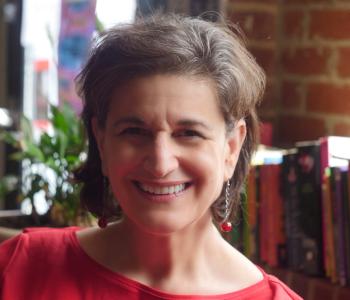
“I’m excited to see where my theological education and experiences take me next.”
JESSICA EASTER
The Night Ministry
Jessica is a Quaker minister who is endorsed by her home Meeting (Lake Forest Friends Meeting) to provide a ministry of presence to folks of a variety of life circumstances. A large part of her ministry involves demonstrating that Quakers still exist, are relevant to today’s concerns, and can look like her.
At ESR Jessica learned that God can be present and active in the most complicated and difficult circumstances. As a result, she has been able to highlight the presence of God in some of the most heartbreaking and challenging of situations (e.g. the deaths of children, spirituality and sexual minorities, and the growing tension between police and youth of color).
During her final year of seminary, Jessica was certified as an HIV pre- and post-testing counselor and health educator. Upon graduating ESR, she embarked upon a yearlong internship as a chaplain at the University of California San Francisco’s three main clinical sites. She currently works as a Youth Outreach Professional at The Night Ministry in Chicago, Illinois. Taking seriously George Fox’s encouragement to answer “that of God in everyone,” Jessica has ministered to and been blessed by everyone from pediatric cancer patients in San Francisco to homeless LGBTQ youth on the streets of Chicago.
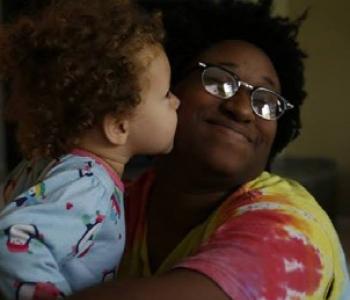
JOHN FITCH
Renaissance House
An ESR M.Div. graduate, John launched Renaissance House in 2003 as an ESR student. This is “an intentional Christian community…located in an impoverished area of Richmond, Indiana [serving the poor and those who have] physical or mental disabilities.” As former resident and ESR graduate Micah Bales puts it, “We had an open door policy, inviting folks from the neighborhood to stop by and visit with us. Three nights a week, we hosted community meals, inviting folks from the neighborhood, and our friends from around town, to come and have dinner together. These dinners were an amazing demonstration of what Christ’s table looks like.”
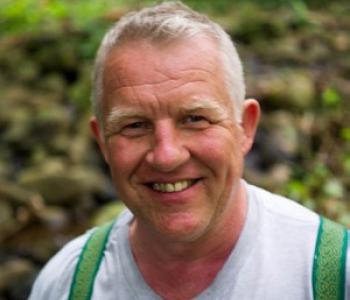
ABBEY PRATT-HARRINGTON
The Laundry Project
Abbey has always had a heart for social justice. Recently, the most noticeable way she lived this out was with her work on Richmond Indiana’s Laundry Day Project. Three to four times a month she went to the local laundry mat with others from the community to provide soap, dryer sheets, and most importantly quarters to local residents so they could clean their laundry for free. It’s a need that is often overlooked in the community but an important one for dignity. The Laundry Project has recently passed its 3,000th load and continues to grow.
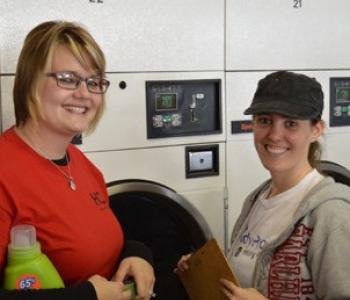
VIVIAN WYATT
Love and inclusivity
“After ESR, God became bigger and more inclusive to me.”
After growing up in a conservative denomination, Vivian Wyatt was certain of one thing: Church should be inclusive. That quest for an open faith community eventually led her to ESR. “I had never met a Quaker until I went to ESR,” says Vivian. “But the qualities I found there gave me the courage to open up my thinking about faith.”
“My goal was to be a hospice chaplain. But a clearness committee of people I trusted steered me toward preaching, and supervised ministry in an MCC church. I loved the experience, and they loved me, and after graduating I stayed.”
“I’ve always been ‘an only.’ Today, I’m the only black women, the only straight person, on the pastoral staff. At ESR I wrestled with my beliefs, and now I’m in a comfortable place.
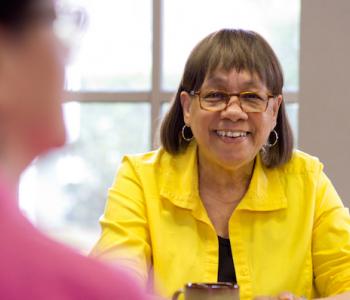
“After ESR, God became bigger and more inclusive to me.”
Happening on campus
Mental Health First Aid Training & Certification (Virtual)
Time: 9:00 amMental Health First Aid (MHFA) Training teaches you how to identify, understand and respond to signs of mental health and substance use challenges among adults.
Mental Health First Aid Training & Certification is taught by Kelly Burk, a certified trainer.
The post Mental Health First Aid Training & Certification (Virtual) appeared first on Earlham School of Religion.
Sing a New Hymn
Time: 7:00 pmJoin us as we explore new directions with hymns inspiring seekers and Quakers today. Amy Duckett Wagner leads this engaging session. Register & find out more at https://SingaNewHymn.eventbrite.com! Learn about…
The post Sing a New Hymn appeared first on Earlham School of Religion.
Beyond Consensus: Discerning the Mind of Christ Clerking Meetings of the Society of Friends (Workshop with Dave Goff)
Time: 7:00 pmThis workshop led by Dave Goff explores the basics of clerking a meeting within the Society of Friends. The primary focus is clerking committee meetings, but the principles can be used at all levels of Quaker business. These principles of discernment are effective whether one is clerking at the Monthly, Quarterly, or Yearly Meeting level or beyond.
The post Beyond Consensus: Discerning the Mind of Christ Clerking Meetings of the Society of Friends (Workshop with Dave Goff) appeared first on Earlham School of Religion.
Mental Health First Aid Training & Certification
Time: 9:00 amMental Health First Aid (MHFA) Training teaches you how to identify, understand and respond to signs of mental health and substance use challenges among adults.
Mental Health First Aid Training & Certification is taught by Kelly Burk, a certified trainer. There are only 30 seats available for this in-person opportunity. Fee of $150 includes the interactive workshop, course certification, lunch, and resource materials for each attendee to keep.
Mental Health First Aid Training & Certification is taught by Kelly Burk, a certified trainer.
The post Mental Health First Aid Training & Certification appeared first on Earlham School of Religion.
Sing a New Song
Time: 7:00 pmJoin us as we come together to discern how we are being called to follow the biblical & spiritual imperative to “sing a new song” – whether literally or metaphorically. Join QLC to engage in music ministry and the “musicality of ministry” with Nate Macy & Melinda Wenner Bradley @ ESR in Richmond IN. Register & find out more at QLCSingANewSong.eventbrite.com!
The post Sing a New Song appeared first on Earlham School of Religion.